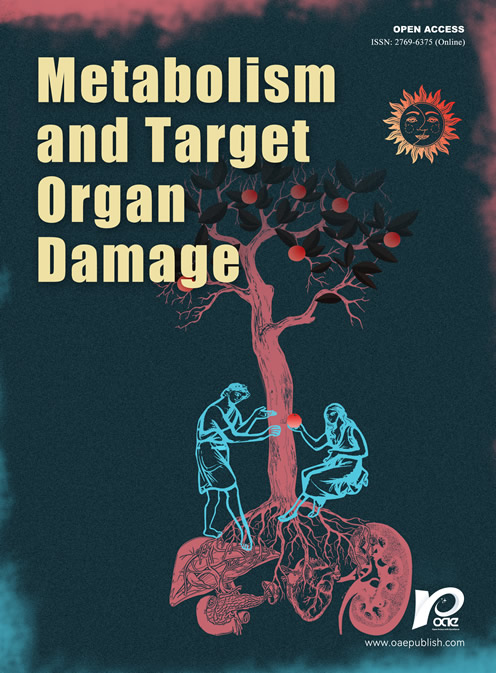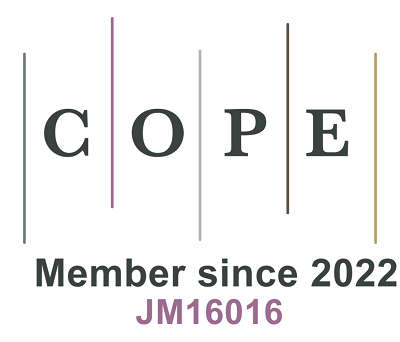REFERENCES
1. Health Education England. Working differently together: progressing a one workforce approach. Multidisciplinary Team Toolkit. Available from: https://www.hee.nhs.uk/sites/default/files/documents/HEE_MDT_Toolkit_V1.1.pdf. [Last accessed on 13 May 2025].
2. Nancarrow SA, Booth A, Ariss S, Smith T, Enderby P, Roots A. Ten principles of good interdisciplinary team work. Hum Resour Health. 2013;11:19.
3. Rosen MA, DiazGranados D, Dietz AS, et al. Teamwork in healthcare: key discoveries enabling safer, high-quality care. Am Psychol. 2018;73:433-50.
4. Royal College of Surgeons of England. High performing surgical team: a guide to best practice. Available from: https://www.rcseng.ac.uk/standards-and-research/standards-and-guidance/good-practice-guides/hpst/. [Last accessed on 13 May 2025].
5. Tørring B, Gittell JH, Laursen M, Rasmussen BS, Sørensen EE. Communication and relationship dynamics in surgical teams in the operating room: an ethnographic study. BMC Health Serv Res. 2019;19:528.
6. Mazzocco K, Petitti DB, Fong KT, et al. Surgical team behaviors and patient outcomes. Am J Surg. 2009;197:678-85.
7. Johnston MJ, Arora S, King D, et al. A systematic review to identify the factors that affect failure to rescue and escalation of care in surgery. Surgery. 2015;157:752-63.
8. Mechanick JI, Apovian C, Brethauer S, et al. Clinical practice guidelines for the perioperative nutrition, metabolic, and nonsurgical support of patients undergoing bariatric procedures - 2019 update: cosponsored by american association of clinical endocrinologists/american college of endocrinology, the obesity society, american society for metabolic & bariatric surgery, obesity medicine association, and american society of anesthesiologists - executive summary. Endocr Pract. 2019;25:1346-59.
9. Eisenberg D, Shikora SA, Aarts E, et al. Publisher correction: 2022 American Society of Metabolic and Bariatric Surgery (ASMBS) and International Federation for the Surgery of Obesity and Metabolic Disorders (IFSO) indications for metabolic and bariatric surgery. Obes Surg. 2023;33:15-6.
10. Khan O, Bano G, Reddy M. The structure and role of the multidisciplinary team in bariatric surgery. In: Agrawal S, Editor. Obesity, bariatric and metabolic surgery. Springer International Publishing, 2016.
11. Collaborative Group. Roux-en-Y gastric bypass, adjustable gastric banding, or sleeve gastrectomy for severe obesity (By-Band-Sleeve): a multicentre, open label, three-group, randomised controlled trial. Lancet Diabetes Endocrinol. 2025;13:410-26.
12. Mitchell JE, Christian NJ, Flum DR, et al. Postoperative behavioral variables and weight change 3 years after bariatric surgery. JAMA Surg. 2016;151:752-7.
13. King WC, Hinerman AS, Belle SH, Wahed AS, Courcoulas AP. Comparison of the performance of common measures of weight regain after bariatric surgery for association with clinical outcomes. JAMA. 2018;320:1560-9.
14. Thompson R, Farrell TM. Importance of a multidisciplinary approach for bariatric surgery. In: Patti MG, Schlottmann F, Di Corpo M, Editors. Foregut surgery: achalasia, gastroesophageal reflux disease and obesity. Springer; 2020. pp. 227-35.
15. Yang W, Abbott S, Borg CM, et al. Global variations in preoperative practices concerning patients seeking primary bariatric and metabolic surgery (PACT Study): a survey of 634 bariatric healthcare professionals. Int J Obes. 2022;46:1341-50.
16. National Institute for Health and Care Excellence. Overweight and obesity management. Available from: https://www.nice.org.uk/guidance/ng246. [Last accessed on 13 May 2025].
17. Rebibo L, Maréchal V, De Lameth I, et al. Compliance with a multidisciplinary team meeting’s decision prior to bariatric surgery protects against major postoperative complications. Surg Obes Relat Dis. 2017;13:1537-43.
18. Bullen NL, Parmar J, Gilbert J, Clarke M, Cota A, Finlay IG. How effective is the multidisciplinary team approach in bariatric surgery? Obes Surg. 2019;29:3232-8.
19. Schmutz J, Manser T. Do team processes really have an effect on clinical performance? Br J Anaesth. 2013;110:529-44.
21. Schot E, Tummers L, Noordegraaf M. Working on working together. A systematic review on how healthcare professionals contribute to interprofessional collaboration. J Interprof Care. 2020;34:332-42.
22. Arksey H, O’Malley L. Scoping studies: towards a methodological framework. Int J Soc Res Methodol. 2005;8:19-32.
23. Tricco AC, Lillie E, Zarin W, et al. PRISMA extension for scoping reviews (PRISMA-ScR): checklist and explanation. Ann Intern Med. 2018;169:467-73.
24. Ballangrud R, Aase K, Vifladt A. Longitudinal team training programme in a Norwegian surgical ward: a qualitative study of nurses’ and physicians’ experiences with teamwork skills. BMJ Open. 2020;10:e035432.
25. Göras C, Unbeck M, Nilsson U, Ehrenberg A. Interprofessional team assessments of the patient safety climate in Swedish operating rooms: a cross-sectional survey. BMJ Open. 2017;7:e015607.
26. Lamb BW, Sevdalis N, Mostafid H, Vincent C, Green JS. Quality improvement in multidisciplinary cancer teams: an investigation of teamwork and clinical decision-making and cross-validation of assessments. Ann Surg Oncol. 2011;18:3535-43.
27. Lamb BW, Taylor C, Lamb JN, et al. Facilitators and barriers to teamworking and patient centeredness in multidisciplinary cancer teams: findings of a national study. Ann Surg Oncol. 2013;20:1408-16.
28. Lamb BW, Sevdalis N, Benn J, Vincent C, Green JS. Multidisciplinary cancer team meeting structure and treatment decisions: a prospective correlational study. Ann Surg Oncol. 2013;20:715-22.
29. Strong S, Paramasivan S, Mills N, Wilson C, Donovan JL, Blazeby JM. ‘The trial is owned by the team, not by an individual’: a qualitative study exploring the role of teamwork in recruitment to randomised controlled trials in surgical oncology. Trials. 2016;17:212.
30. Undre S, Healey AN, Darzi A, Vincent CA. Observational assessment of surgical teamwork: a feasibility study. World J Surg. 2006;30:1774-83.
31. Brommelsiek M, Kanter SL, Sutkin G. An ethnographic study examining attending surgeon persona in the operating room and influence on interprofessional team action. J Interprof Educ Pract. 2020;20:100359.
33. The Government Office for Science. The foresight report. Reducing obesity: future choices. Available from: https://www.gov.uk/government/publications/reducing-obesity-future-choices. [Last accessed on 13 May 2025].
34. David LA, Sijercic I, Cassin SE. Preoperative and post-operative psychosocial interventions for bariatric surgery patients: a systematic review. Obes Rev. 2020;21:e12926.
35. Parrott JM, Craggs-Dino L, Faria SL, O’Kane M. The optimal nutritional programme for bariatric and metabolic surgery. Curr Obes Rep. 2020;9:326-38.
36. O’Kane M, Parretti HM, Pinkney J, et al. British Obesity and Metabolic Surgery Society Guidelines on perioperative and postoperative biochemical monitoring and micronutrient replacement for patients undergoing bariatric surgery-2020 update. Obes Rev. 2020;21:e13087.
37. Ogden J, Ratcliffe D, Snowdon-Carr V. British Obesity Metabolic Surgery Society endorsed guidelines for psychological support pre- and post-bariatric surgery. Clin Obes. 2019;9:e12339.
38. Taberna M, Gil Moncayo F, Jané-Salas E, et al. The multidisciplinary team (MDT) approach and quality of care. Front Oncol. 2020;10:85.
39. Kaur V, Bowen L, Bano G, Reddy M, Khan O. Multidisciplinary team in bariatric surgery: structure and role. In: Agrawal S, Editor. Obesity, bariatric and metabolic surgery. Cham: Springer International Publishing; 2020. pp. 1-8.
40. Wharton S, Lau DCW, Vallis M, et al. Obesity in adults: a clinical practice guideline. CMAJ. 2020;192:E875-91.
41. Breen C, O’Connell J, Geoghegan J, et al. Obesity in adults: a 2022 adapted clinical practice guideline for Ireland. Obes Facts. 2022;15:736-52.









